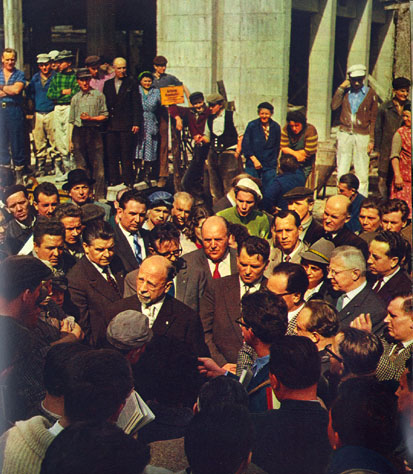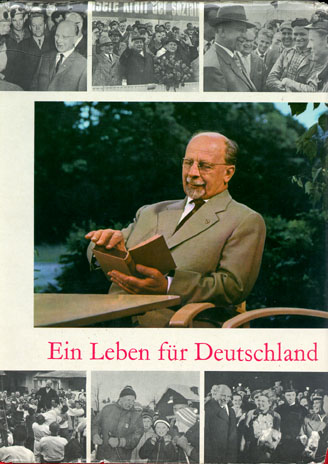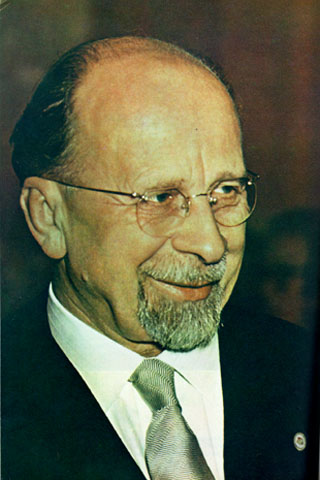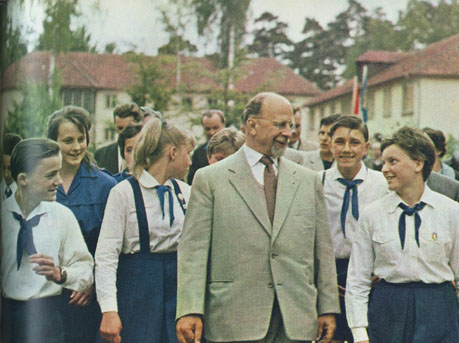Background: These are pictures from a 1968 coffee table type book on Walter Ulbricht, the GDR’s leader from 1953-1971. He was never popular and after he was deposed by Erich Honecker in 1971 sank quickly into obscurity. When he died in 1973, the flags were not lowered to half-mast. The book has 240 pages and numerous photographs. It is interesting to compare how Hitler and the GDR’s leaders were pictured. Hitler almost always looked “superhuman.” He was typically photographed in a way that made him look larger than life. Ulbricht, on the other hand, looks like a kindly grandfather.
The source: Walter Ulbricht — ein Leben für Deutschland (Leipzig, E. A. Seemann Verlag, 1968).
Walter Ulbricht — A Life for Germany
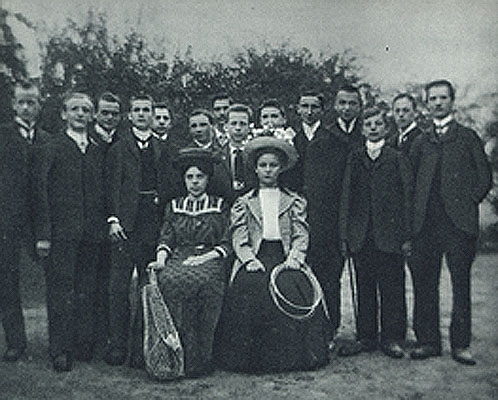
Caption: “Exploitation. How often Walter Ulbricht heard this word as a child. As an apprentice in a furniture shop, he learned its brutal reality. What his mother had put in his heart and his father had taught him, he learned now from hard experience: The only way the workers could break the yoke of oppression was to work together! While hardly more than a boy, he participated in a strike in 1908 and became a member of the Socialist Working Youth. At the same time, the carpenter’s apprentice Walter Ulbricht found that one must learn and keep learning to be prepared for the working class’s fight for freedom. ‘Back then we heard speeches urging us to study the Communist Manifesto, books on the history of Socialism, on Karl Marx’s Economic Thinking and other Marxist works. I also attended trade school each day,’ Walter Ulbricht later wrote of his youth.”

Caption: “Many poets praised the wandering apprentice. The young carpenter’s apprentice, who had become a member of the German woodworker’s federation in 1910, found little truth in the songs as he traveled through Germany, Austria, Italy Switzerland, Belgium, and Holland. Everywhere he found the exploited and oppressed who had nothing to lose but their chains, and who everywhere yearned for freedom and peace. They joined in solidarity to win the world: a world that the poets dreamed of in their songs, a world in which a person was really a person. He learned during his travels to respect and love other nations. They taught him that true patriotism is inseparable from friendship between the peoples.”
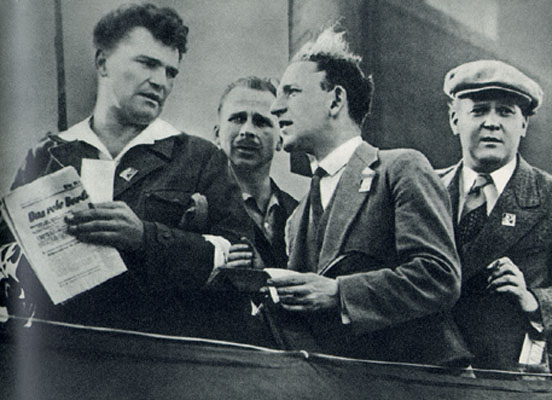
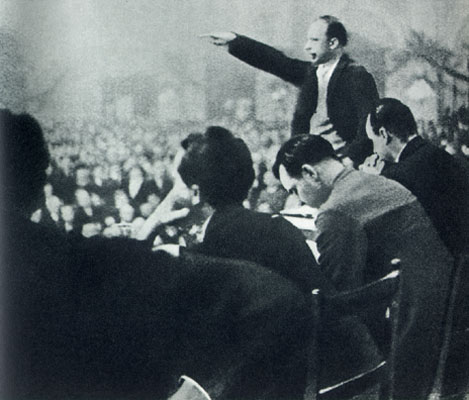
“To win back workers confused by Nazi lies, Walter Ulbricht went to Nazi meetings and revealed the Nazi leaders for what they were. On 22 January 1931, a Nazi meeting in Friedrichshain ended with the complete defeat of the Nazi Gauleiter of Berlin, Goebbels. In this meeting, Walter Ulbricht told the workers:
The victory of the working people over the exploiters and slave holders is at the same time the victorious struggle for liberation by the German people. It is the way to prosperity, work and freedom, it means tearing up the Young Plan [a plan to deal with German WW I reparations payments]. Look to the Soviet Union, which has freed itself from every enemy! Long live the united front of the fighting proletariat and all workers against exploitation, Young Plan enslavement, and Fascism!”
